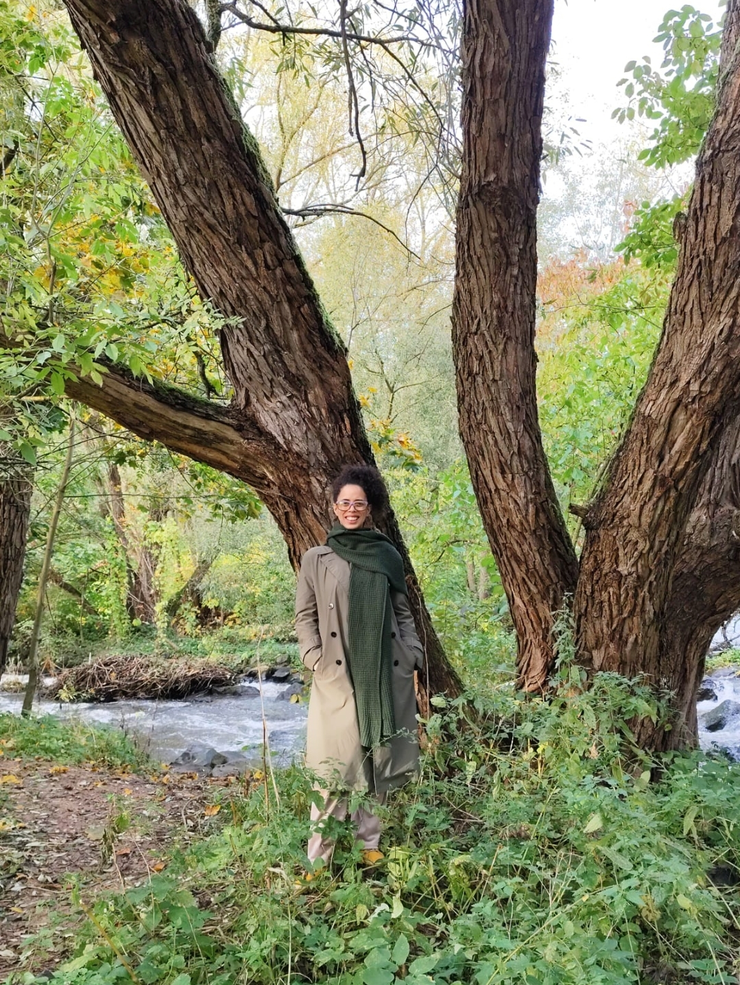Luciana Santos Barbosa
Research Associate
E-Mail-Adress: luciana.santos_barbosa@uni-erfurt.de
I graduated in History at the Pontifical Catholic University of São Paulo. I developed, at the same University, my master thesis entitled Aureliza Alves do Nascimento (1927-1971): in search for a new beginning: woman, prostitution and violence in land of Jorge Amado, rescuing my grandmother's trajectory in a critical way and drawing parallels with the literature of Jorge Amado and oral history that I collected during the process. At the University of São Paulo, I wrote the thesis: Neurotecnoneoliberal ideologies: from Kurzweil's utopia to dystopic literature, in which I investigate the social impacts that emerge from the intersection between neurosciences and tecnologies. I currently work as an affiliated researcher at Universität Erfurt with the research: Philosophy and Ecology: towards a Phenomenology of Mixed Cultures, where I continue my doctoral work investigating how mixed peoples that have a close relationship with nature view disasters, environmental issues and the climate crisis; how they deal with these problems and how it is possible, based on understanding how these peoples relate to nature, to think about better and possible futures for humanity. I also dedicate myself to the studies of mixed cultures and religions in Brazil.
Publication list:
- SANTOS BARBOSA, Luciana; MARTINS DOS ANJOS SILVA, Júlio César. Computational language and the need to rethink the curriculum. ICT in education, São Paulo, 2018.
- Arte Africana no Contemporâneo. 1. ed. Curitiba: Editora Positivo, 2016. v. 6.
- O grito de denuncia de Tereza: história,corpo e literatura.. REVISTA CORDIS-REVISTA ELETRÔNICA DE HISTÓRIA SOCIAL DA CIDADE, v. 7, p. 1, 2011
- Tereza: A mulher nos espaços Baianos. REVISTA CORDIS- REVISTA ELETRÔNICA DE HISTÓRIA SOCIAL DA CIDADE, v. 3-4, p. 11, 2010.
Project description:
Philosophy and Ecology: Towards a Phenomenology of Mixed Cultures
The phenomenology of peoples, of how different peoples see the world and how it presents itself, produces different ways of relating to nature and thought. The aim of this research is to address the different ways of seeing the world, environmental disasters and the climate crisis. If for some peoples the world as they knew it has already ended, as reported in the autobiographical account The falling sky by indigenous leader Davi Kopenawa and the novel Things fall apart by Nigerian Chinua Achebe, a new way of perceiving, experiencing and interacting with this world presents itself. Unlike the Western perception, which projects the "end of the world" into the future in the various dystopian novels that have been written more intensely since the 80s, for some peoples the world has already ended and they have been trying to preserve what is left of it since then. It is from the consciousness of these peoples in the face of the catastrophic world that presents itself that this research will dedicate efforts to think about the relationship between ecology and philosophy, the body and the environment, being and beings, the human being and/or nature and how different forms of thinking emerge from this relationship.



